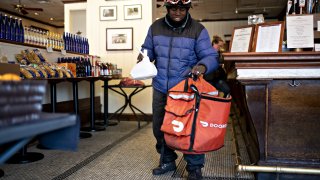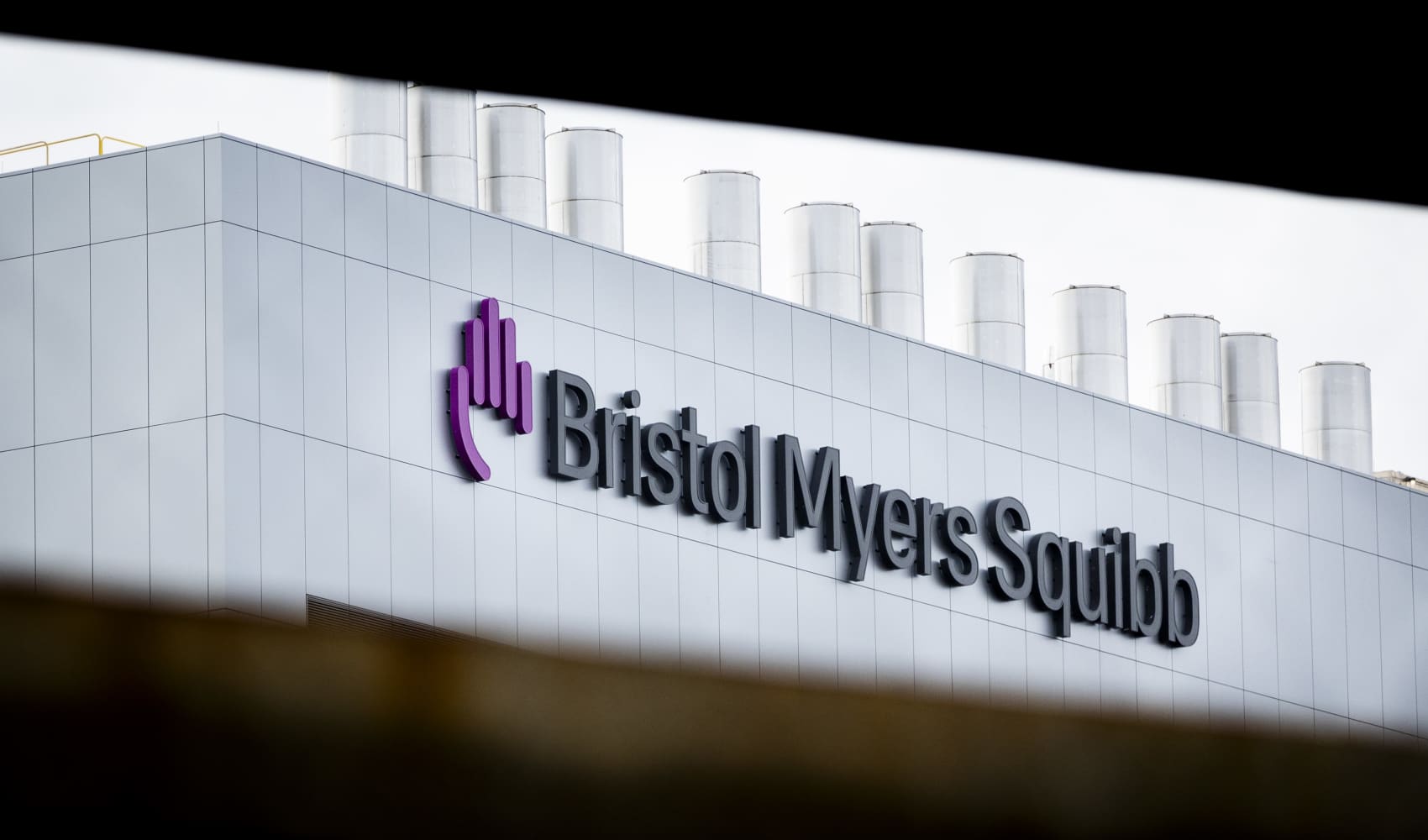
- DoorDash sold shares at $102 a piece in its IPO, above its range of $90 to $95, according to people familiar with the matter.
- Revenue at the the food delivery company jumped 268% in the third quarter to $879 million.
- DoorDash has been one of the biggest beneficiaries of the coronavirus pandemic, which forced restaurants to close their dining rooms and move to delivery.
DoorDash, the food delivery provider that's seen a surge in demand during the coronavirus pandemic, sold shares in its IPO at $102 a piece, pricing above its range, according to people familiar with the matter.
The offering on Tuesday values the company at $32.4 billion, based on common stock outstanding and $38.7 billion on a fully-diluted basis. The company previously said it expected to sell shares at between $90 and $95. The sources asked not to be named because the pricing is still confidential.
Get Philly local news, weather forecasts, sports and entertainment stories to your inbox. Sign up for NBC Philadelphia newsletters.
DoorDash is the first IPO in a late-year consumer technology wave that includes the expected debut of Airbnb later this week, followed by e-retailer Wish next week and fin-tech company Affirm and kids' game maker Roblox this month. The companies are taking advantage of a post-election stock rally and a clear indication of investor demand for high-growth tech, which has led the market this year.
While a wide swath of software and internet companies have gotten swept up in the Covid-19 rally, few have experienced the kind of growth seen by DoorDash. Revenue in the third quarter surged 268% from a year earlier to $879 million, following growth in the second quarter of 214%. Through the first nine months of 2020, DoorDash's order volume climbed to $16.5 billion from $5.5 billion a year earlier.
DoorDash, based in San Francisco, makes money by charging a commission to participating restaurants that can reach 30% of an order as well as a fee of a few dollars per order from consumers. DoorDash said in its prospectus that 390,000 merchants are now on the platform. That includes everything from fast food chains like Chick-Fil-A, Chipotle and McDonald's to upscale restaurants that were forced to close their doors earlier this year and switch to takeout and delivery.
Money Report
The company, which ranked 12th on CNBC' Disruptor 50 list for 2020, has been able to cut its losses this year, but still reported a net loss for the first three quarters of $149 million, down from $534 million in the same period of 2019. DoorDash at least makes money on every order now, recording a so-called contribution margin of 23% through September, compared with a negative margin of 32% a year earlier.
DoorDash controls about 50% of the U.S. food delivery market, well ahead of rivals Uber Eats and GrubHub. The biggest overhang for the company may be uncertainty about what the business looks like in a post-Covid world, especially with a widespread vaccine rollout expected by mid-2021.
Should consumers return to eating out instead of relying on delivery, DoorDash could see business deteriorate. Meanwhile, restaurants, which tend to operate on very low margins, are constantly seeking ways to keep their costs down, and there's technology on the market to help them accomplish that without relying on third-party apps.
As DoorDash warns in its prospectus, "The circumstances that have accelerated the growth of our business stemming from the effects of the COVID-19 pandemic may not continue in the future, and we expect the growth rates in revenue, Total Orders, and Marketplace GOV to decline in future periods."
DoorDash CEO Tony Xu co-founded the company in 2013, in Palo Alto, California, where the service reached its first customers. Xu currently owns just under 5% of the company's outstanding shares. SoftBank, which led a $535 million investment in 2018, is the largest shareholder with about 20% stake, followed by Sequoia, which owns 16%.
WATCH: The upside of DoorDash is in its subscription service






